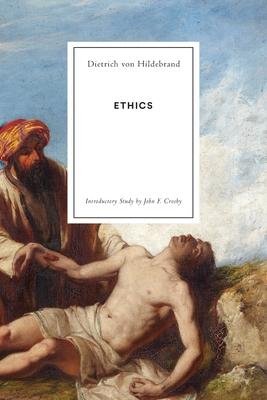Dietrich von Hildebrand offers here the most nuanced version that we have of a value-based ethics, building on the ethics of Max Scheler, but going far beyond it. The Prolegomena of the work gives an account of Hildebrand's understanding of phenomenology. In the first fourteen chapters Hildebrand lays out a general theory of value, in which he distinguishes himself from his predecessors by not limiting value to the sense of what is good for the human person, but instead placing at the center of his reflections what is good and worthy in itself, prior to its beneficent impact on human persons. On this basis he develops his signature concept of value-response, wherein a person gives value its due, along with his signature concept of the transcendence of the person in value-response. He re-thinks virtue theory on the basis of his value philosophy, and in doing so he places virtue at the center of his ethics long before the revival of virtue theory in Anglo-American thought. Of particular importance is his re-thinking of moral evil in its different forms, and he throws new light on the question how it is possible knowingly to do wrong. The book concludes with probing account of the religious dimension of the moral life and the place of God in morality.

Dietrich von Hildebrand offers here the most nuanced version that we have of a value-based ethics, building on the ethics of Max Scheler, but going far beyond it. The Prolegomena of the work gives an account of Hildebrand's understanding of phenomenology. In the first fourteen chapters Hildebrand lays out a general theory of value, in which he distinguishes himself from his predecessors by not limiting value to the sense of what is good for the human person, but instead placing at the center of his reflections what is good and worthy in itself, prior to its beneficent impact on human persons. On this basis he develops his signature concept of value-response, wherein a person gives value its due, along with his signature concept of the transcendence of the person in value-response. He re-thinks virtue theory on the basis of his value philosophy, and in doing so he places virtue at the center of his ethics long before the revival of virtue theory in Anglo-American thought. Of particular importance is his re-thinking of moral evil in its different forms, and he throws new light on the question how it is possible knowingly to do wrong. The book concludes with probing account of the religious dimension of the moral life and the place of God in morality.